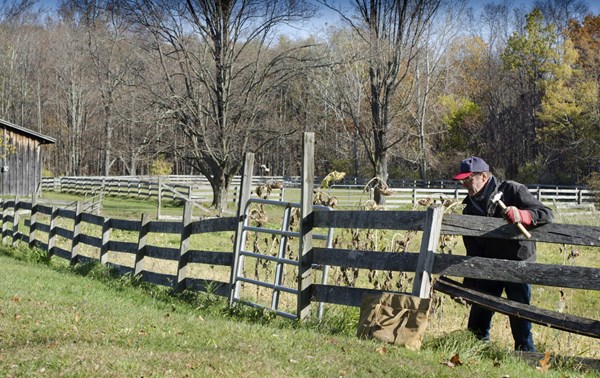
When seeking help with repairs and improvements of your facility, one option might be student labor, especially if nearby communities have high school or college students who need a job and want to work at a horse establishment.
Working students could include a variety of people, including college students studying equine sciences, equestrian sports, or other equine subjects, or they could be students interning at a barn to have access to specific training and instructors.
“If you want to use working student labor for barn maintenance tasks, be careful about how you go about it,” said Heather E. Lewis, AIA, NCARB (American Institute of Architects, National Council of Architectural Boards). “Working students may be paid or they may not be, and their benefits vary. However, none are paid well, so don’t ask them to do difficult, arduous, or dangerous tasks. Be careful not to take advantage of their willingness and good will, or your program could develop a negative reputation, which is all too easy to share online these days.”
Maintenance projects for working students could include many regular tasks that would be a normal be part of their care of an equine property. According to Lewis, these projects might include:
- Periodic inspection and tensioning of fencing wires and connections.
- Maintenance of tack and equipment, focusing on safety issues.
- Inspection and repair of stall interiors, looking for sharp edges, splintered wood, etc. This can be good training for observing and maintaining a safe place for horses at home or on the road.
- Projects having to do specifically with horse keeping, such as filling in holes that horses have dug in paddocks and stalls, resetting stall mats, cleaning water troughs and automatic waterers, etc.
- Arena and track grooming maintenance. Good tractor skills will be great training for your working students.
“Your focus for the working student should be somewhere between farm hand and skilled labor,” advised Lewis. “You won’t expect them to have special skills at first, but teaching them can be good for both your students and your barn. By the end of a working student internship, your student should not only be benefitting from your training and facilities, but should be relatively self-directed, which will help the student be a more successful equine professional.”
When looking for a working student, if you want to ask for tasks beyond routine barn and horse care chores, be clear about what these tasks are so applicants can understand what the job entails.
“Be sure you have a liability release with your working students,” advised Lewis. “While barn owners are vigilant about understanding the danger that working with horses can create, you may not have thought about the liability of driving a tractor or working with tools.”
Never ask your students to do something they are uncomfortable with. Let them know that it is OK to ask for help. This will keep the relationships harmonious and positive.


